ARE PEOPLE WORRYING
In the UK, the level of concern has remained high (at 84%) and has not really changed, despite the fact that we are entering the ninth month. The announcement of a second formal lockdown on November 5th in the UK has likely contributed to that continued concern. The story is slightly more nuanced as the level of new cases is higher in certain regions, the North of England, Scotland and Northern Ireland but the concern remains across the UK.
Question: Are you worried about the coronavirus? % yes
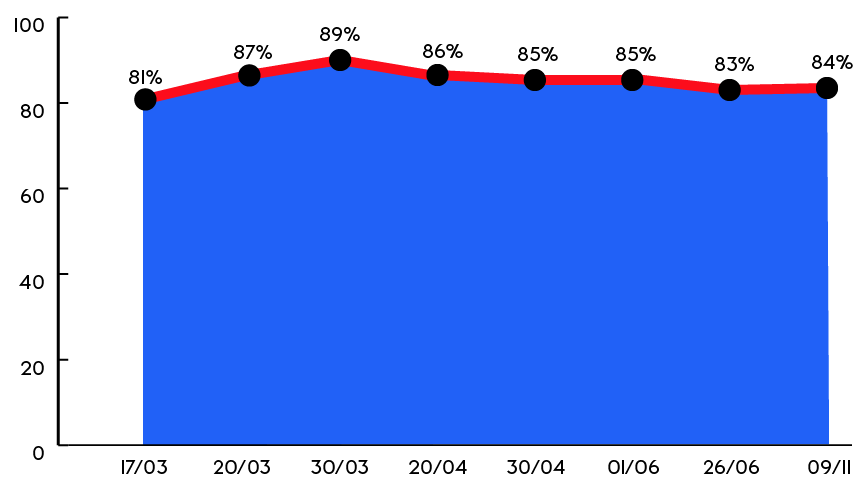
ARE PEOPLE TAKING PREVENTIVE MEASURES
At the same time, since the last of our checks in late June, people had shown some signs of loosening their behaviours around staying home (down 8%), avoid interaction with other people (down 8%) and washing hands (down 7%) established during the pandemic. These are not dramatic shifts, more they reflect the opening up of selective parts of the economy, which have only recently been shut down for a minimum of 4 weeks. We expect the second lockdown will push some of these measures back to levels from earlier in the year.
Question: Have you taken any measures to prevent infection with the coronavirus? % yes
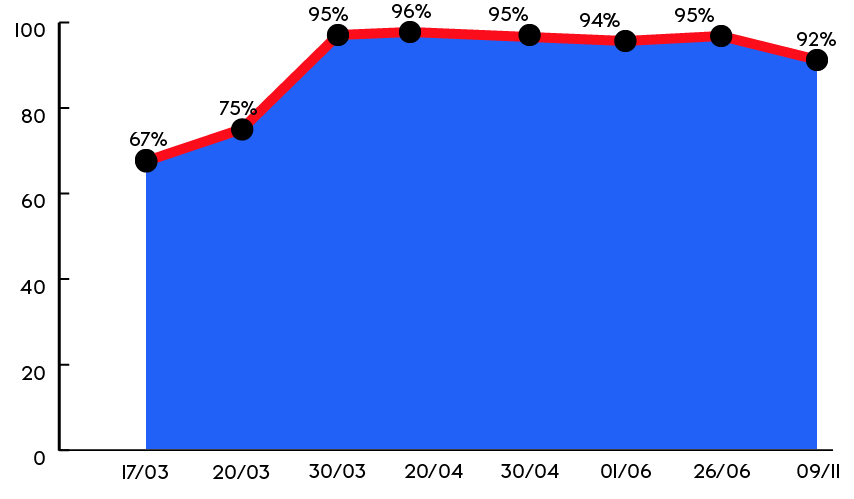
WHICH MEASURES ARE TAKEN
The most noticeable change has been the purchase of face masks (now at 79% but back in March only 12%) but this has come at the same time in early November when a larger list of occasions where government advice was declared mandatory in areas like retail.
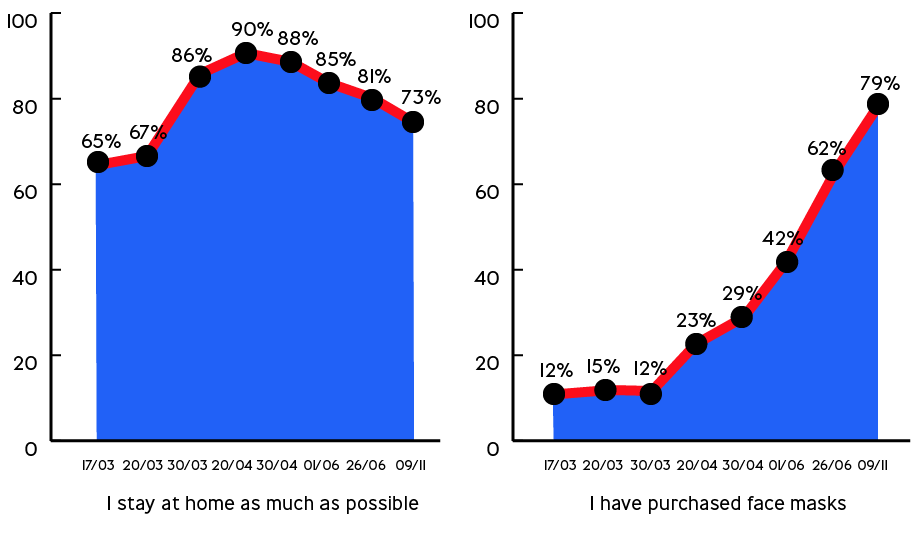
HOW DO WE FEEL ABOUT THE GOVERNMENT
The slightly improved perception of UK government may have been influenced by the announcement of the second lockdown on November 1st that came into effect 4 days later. Public opinion generally supported the idea of a more rigorous lockdown with cases building, pressure on the health service and cases also rising across Europe. That is reflected in more support in November for the action taken by the government that had previously been declining. That said, trust in UK government is lower than in the Netherlands and Germany, in key measures such as confidence in taking enough measures to reduce the spread (8% below the Netherlands and Germany) and communicating the right information (14% lower than the Netherlands and 7% lower than Germany).
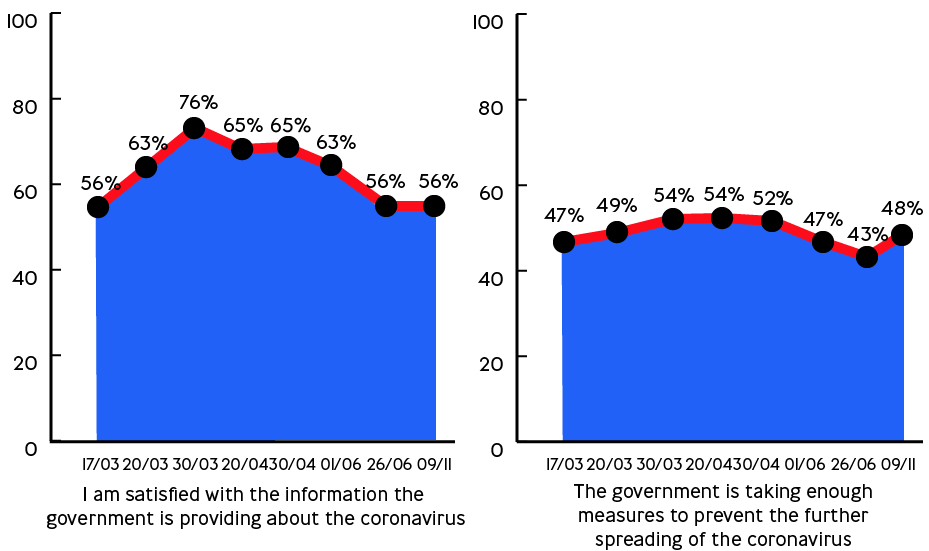
HOW DO WE FEEL ABOUT THE MEDIA
This has remained pretty consistent with only around one-third thinking the media are paying too much attention to the pandemic. Of course, we have to take into account that when the questions were asked, there was significant media interest in the imminent US election.
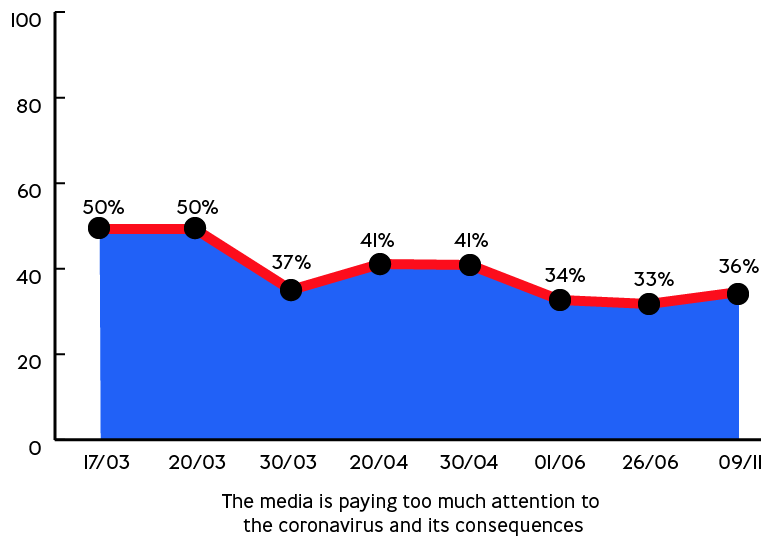
Holidays 2020
With the recent second lockdown, it is no surprise 63% thinks holidays will be celebrated with fewer people and a clear recognition that there will be few other activities. 70% said they will stay at home and the level of uncertainty exemplified by 64% saying they have made no real plans.
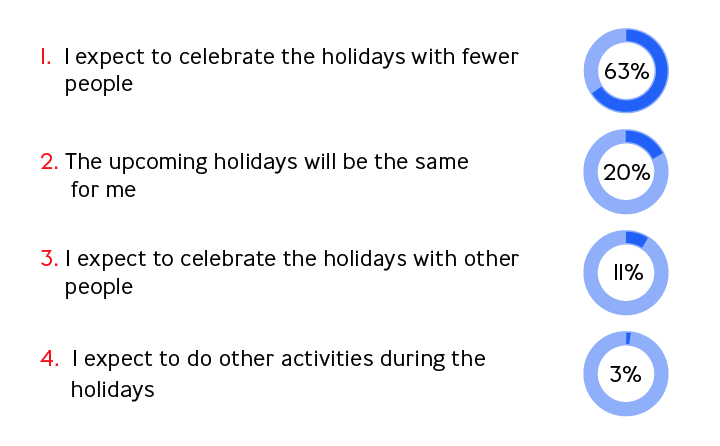
Christmas commercials
63% of people say ‘yes’ and there is evidence that key advertisers fully recognise this. For example, Sainsbury’s have moved to a series of 3 videos that focus on previously shared experiences and highlight the importance of family connections and home, whatever the circumstances. John Lewis message is about spreading kindness and raising charity money for those hardest hit. M&S have said that the time is simply not right for a big Christmas ad.
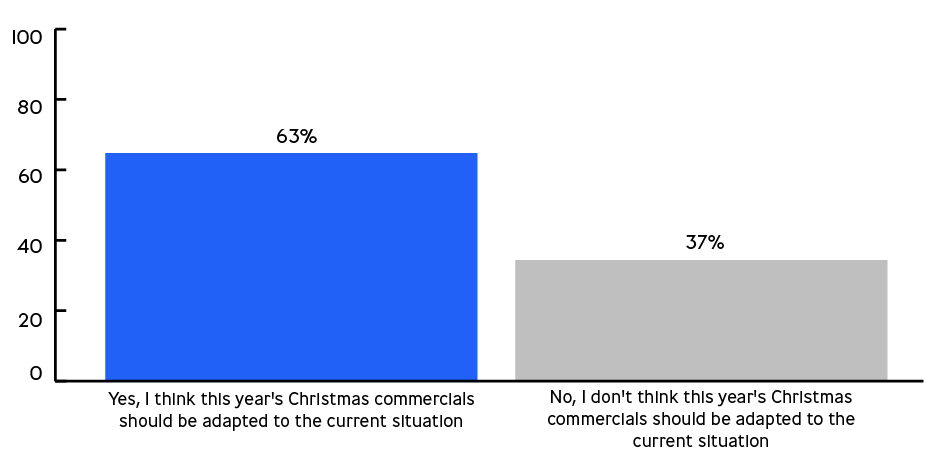
REQUEST THE REPORT
Curious about all the results? You can request the report through the form below.
RESEARCH METHOD DVJ INSIGHTS
The sample for this study consists of over 500 people per measurement. This number is large enough for reliable results. In addition, a representative sample by gender and age, education level and region were used. Based on this sampling method, we can state that the results represent the opinion of the United Kingdom as it was at the time of measurement.